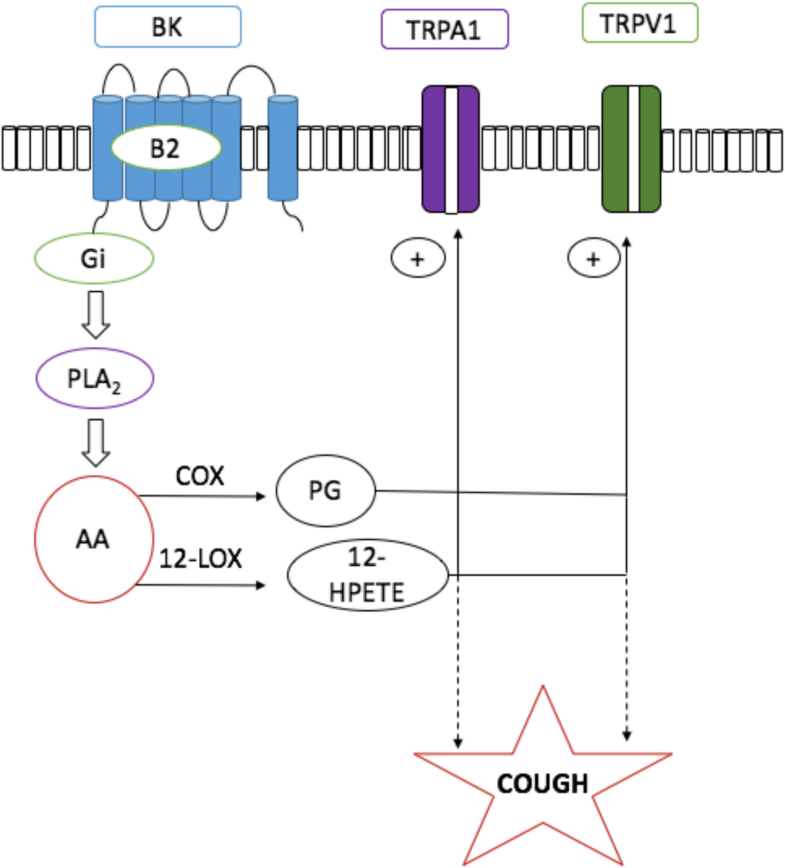- Respiratory Research
- Research
- Open Access
Respiratory Research201920:110
Abstract
Background
Inhaled bradykinin (BK) has been reported to both sensitize and induce cough but whether BK can centrally sensitize the cough reflex is not fully established. In this study, using a conscious guinea-pig model of cough, we investigated the role of BK in the central sensitization of the cough reflex and in airway obstruction.
Methods
Drugs were administered, to guinea pigs, by the intracerebroventricular (i.c.v.) route. Aerosolized citric acid (0.2 M) was used to induce cough in a whole-body plethysmograph box, following i.c.v. infusion of drugs. An automated analyser recorded both cough and airway obstruction simultaneously.
Results
BK, administered by the i.c.v. route, dose-dependently enhanced the citric acid-induced cough and airway obstruction. This effect was inhibited following i.c.v. pretreatment with a B2 receptor antagonist, TRPV1 and TRPA1 channels antagonists and cyclooxygenase (COX) and 12-lipoxygenase (12-LOX) inhibitors. Furthermore, co-administration of submaximal doses of the TRPV1 and TRPA1 antagonists or the COX and 12-LOX inhibitors resulted in a greater inhibition of both cough reflex and airway obstruction.
Conclusions
Our findings show that central BK administration sensitizes cough and enhances airway obstruction via a B2 receptor/TRPV1 and/or TRPA1 channels which are coupled via metabolites of COX and/or 12-LOX enzymes. In addition, combined blockade of TRPV1 and TRPA1 or COX and 12-LOX resulted in a greater inhibitory effect of both cough and airway obstruction. These results indicate that central B2 receptors, TRPV1/TRPA1 channels and COX/12-LOX enzymes may represent potential therapeutic targets for the treatment of cough hypersensitivity.

No comments:
Post a Comment